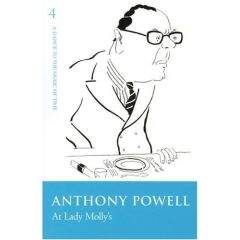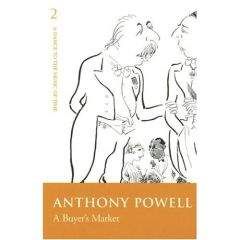Anthony Trollope - Autobiography of Anthony Trollope
had want or ambition stirred him. He was our king at the Garrick
Club, to which, however, I did not yet belong. He gave the best
dinners of my time, and was,--happily I may say is, [Footnote:
Alas! within a year of the writing of this he went from us.]--the
best giver of dinners. A man rough of tongue, brusque in his manners,
odious to those who dislike him, somewhat inclined to tyranny, he
is the prince of friends, honest as the sun, and as openhanded as
Charity itself.
Robert Bell has now been dead nearly ten years. As I look back
over the interval and remember how intimate we were, it seems odd
to me that we should have known each other for no more than six
years. He was a man who had lived by his pen from his very youth;
and was so far successful that I do not think that want ever came
near him. But he never made that mark which his industry and talents
would have seemed to ensure. He was a man well known to literary
men, but not known to readers. As a journalist he was useful
and conscientious, but his plays and novels never made themselves
popular. He wrote a life of Canning, and he brought out an annotated
edition of the British poets; but he achieved no great success.
I have known no man better read in English literature. Hence his
conversation had a peculiar charm, but he was not equally happy
with his pen. He will long be remembered at the Literary Fund
Committees, of which he was a staunch and most trusted supporter.
I think it was he who first introduced me to that board. It has
often been said that literary men are peculiarly apt to think that
they are slighted and unappreciated. Robert Bell certainly never
achieved the position in literature which he once aspired to fill,
and which he was justified in thinking that he could earn for
himself. I have frequently discussed these subjects with him, but
I never heard from his mouth a word of complaint as to his own
literary fate. He liked to hear the chimes go at midnight, and he
loved to have ginger hot in his mouth. On such occasions no sound
ever came out of a man's lips sweeter than his wit and gentle
revelry.
George Lewes,--with his wife, whom all the world knows as George
Eliot,--has also been and still is one of my dearest friends.
He is, I think, the acutest critic I know,--and the severest. His
severity, however, is a fault. His intention to be honest, even when
honesty may give pain, has caused him to give pain when honesty has
not required it. He is essentially a doubter, and has encouraged
himself to doubt till the faculty of trusting has almost left him.
I am not speaking of the personal trust which one man feels in
another, but of that confidence in literary excellence, which is,
I think, necessary for the full enjoyment of literature. In one
modern writer he did believe thoroughly. Nothing can be more charming
than the unstinted admiration which he has accorded to everything
that comes from the pen of the wonderful woman to whom his lot has
been united. To her name I shall recur again when speaking of the
novelists of the present day.
Of "Billy Russell," as we always used to call him, I may say
that I never knew but one man equal to him in the quickness and
continuance of witty speech. That one man was Charles Lever--also
an Irishman--whom I had known from an earlier date, and also with
close intimacy. Of the two, I think that Lever was perhaps the
more astounding producer of good things. His manner was perhaps a
little the happier, and his turns more sharp and unexpected. But
"Billy" also was marvellous. Whether abroad as special correspondent,
or at home amidst the flurry of his newspaper work, he was a charming
companion; his ready wit always gave him the last word.
Of Thackeray I will speak again when I record his death.
There were many others whom I met for the first time at George
Smith's table. Albert Smith, for the first, and indeed for the last
time, as he died soon after; Higgins, whom all the world knew as
Jacob Omnium, a man I greatly regarded; Dallas, who for a time was
literary critic to the Times, and who certainly in that capacity
did better work than has appeared since in the same department;
George Augustus Sala, who, had he given himself fair play, would
have risen to higher eminence than that of being the best writer
in his day of sensational leading articles; and Fitz-James Stephen,
a man of very different calibre, who had not yet culminated, but
who, no doubt, will culminate among our judges. There were many
others;--but I cannot now recall their various names as identified
with those banquets.
Of Framley Parsonage I need only further say, that as I wrote it I
became more closely than ever acquainted with the new shire which
I had added to the English counties. I had it all in my mind,--its
roads and railroads, its towns and parishes, its members of Parliament,
and the different hunts which rode over it. I knew all the great
lords and their castles, the squires and their parks, the rectors
and their churches. This was the fourth novel of which I had placed
the scene in Barsetshire, and as I wrote it I made a map of the
dear county. Throughout these stories there has been no name given
to a fictitious site which does not represent to me a spot of which I
know all the accessories, as though I had lived and wandered there.
CHAPTER IX "CASTLE RICHMOND;" "BROWN, JONES, AND ROBINSON;" "NORTH AMERICA;" "ORLEY FARM"
When I had half-finished Framley Parsonage, I went back to my other
story, Castle Richmond, which I was writing for Messrs. Chapman &
Hall, and completed that. I think that this was the only occasion
on which I have had two different novels in my mind at the same
time. This, however, did not create either difficulty or confusion.
Many of us live in different circles; and when we go from our friends
in the town to our friends in the country, we do not usually fail
to remember the little details of the one life or the other. The
parson at Rusticum, with his wife and his wife's mother, and all
his belongings; and our old friend, the Squire, with his family
history; and Farmer Mudge, who has been cross with us, because we
rode so unnecessarily over his barley; and that rascally poacher,
once a gamekeeper, who now traps all the foxes; and pretty Mary
Cann, whose marriage with the wheelwright we did something to
expedite;--though we are alive to them all, do not drive out of our
brain the club gossip, or the memories of last season's dinners, or
any incident of our London intimacies. In our lives we are always
weaving novels, and we manage to keep the different tales distinct.
A man does, in truth, remember that which it interests him to
remember; and when we hear that memory has gone as age has come on,
we should understand that the capacity for interest in the matter
concerned has perished. A man will be generally very old and feeble
before he forgets how much money he has in the funds. There is
a good deal to be learned by any one who wishes to write a novel
well; but when the art has been acquired, I do not see why two or
three should not be well written at the same time. I have never
found myself thinking much about the work that I had to do till
I was doing it. I have indeed for many years almost abandoned the
effort to think, trusting myself, with the narrowest thread of
a plot, to work the matter out when the pen is in my hand. But my
mind is constantly employing itself on the work I have done. Had
I left either Framley Parsonage or Castle Richmond half-finished
fifteen years ago, I think I could complete the tales now with very
little trouble. I have not looked at Castle Richmond since it was
published; and poor as the work is, I remember all the incidents.
Castle Richmond certainly was not a success,--though the plot is a
fairly good plot, and is much more of a plot than I have generally
been able to find. The scene is laid in Ireland, during the famine;
and I am well aware now that English readers no longer like Irish
stories. I cannot understand why it should be so, as the Irish
character is peculiarly well fitted for romance. But Irish subjects
generally have become distasteful. This novel, however, is of
itself a weak production. The characters do not excite sympathy.
The heroine has two lovers, one of whom is a scamp and the other
a prig. As regards the scamp, the girl's mother is her own rival.
Rivalry of the same nature has been admirably depicted by Thackeray
in his Esmond; but there the mother's love seems to be justified
by the girl's indifference. In Castle Richmond the mother strives
to rob her daughter of the man's love. The girl herself has no
character; and the mother, who is strong enough, is almost revolting.
The dialogue is often lively, and some of the incidents are well
told; but the story as a whole was a failure. I cannot remember,
however, that it was roughly handled by the critics when it came
out; and I much doubt whether anything so hard was said of it then
as that which I have said here.
I was now settled at Waltham Cross, in a house in which I could
entertain a few friends modestly, where we grew our cabbages
and strawberries, made our own butter, and killed our own pigs. I
occupied it for twelve years, and they were years to me of great
prosperity. In 1861 I became a member of the Garrick Club, with
which institution I have since been much identified. I had belonged
to it about two years, when, on Thackeray's death, I was invited
to fill his place on the Committee, and I have been one of that
august body ever since. Having up to that time lived very little
among men, having known hitherto nothing of clubs, having even as
a boy been banished from social gatherings, I enjoyed infinitely at
first the gaiety of the Garrick. It was a festival to me to dine
there--which I did indeed but seldom; and a great delight to play
a rubber in the little room up-stairs of an afternoon. I am speaking
now of the old club in King Street. This playing of whist before
dinner has since that become a habit with me, so that unless there
be something else special to do--unless there be hunting, or I am
wanted to ride in the park by the young tyrant of my household--it
is "my custom always in the afternoon." I have sometimes felt sore




